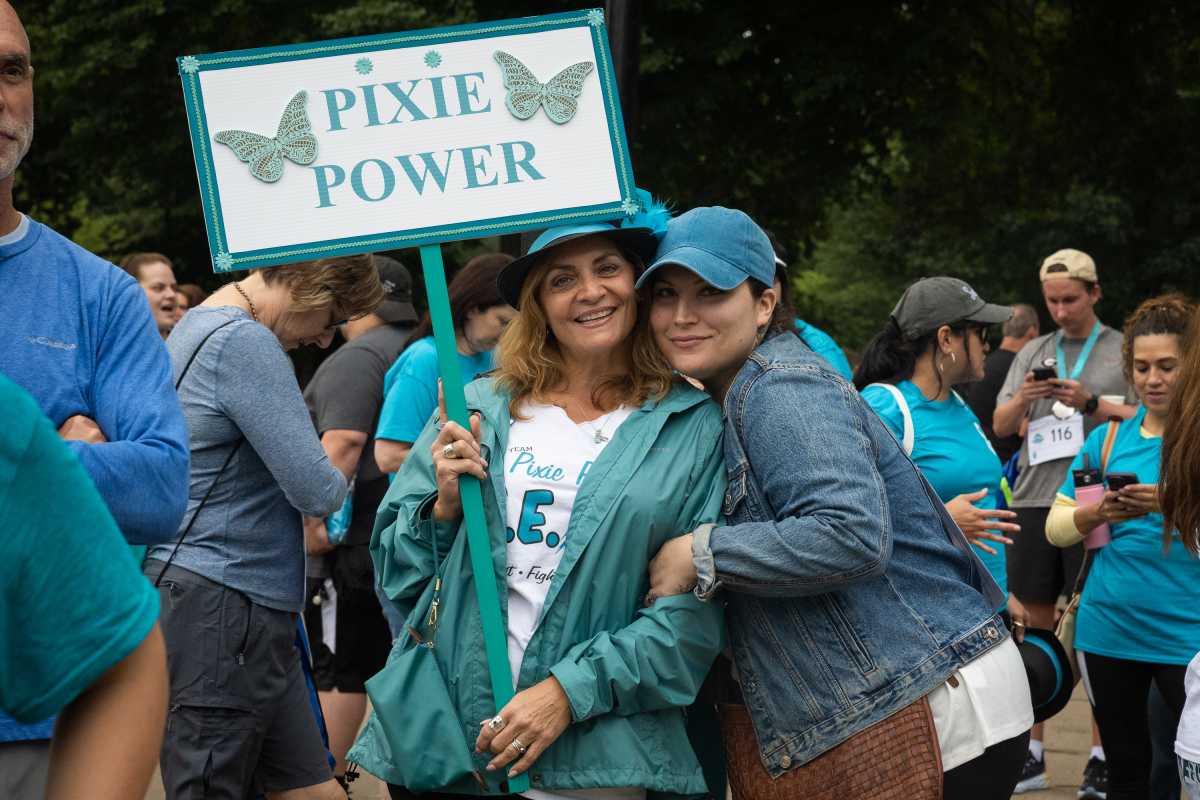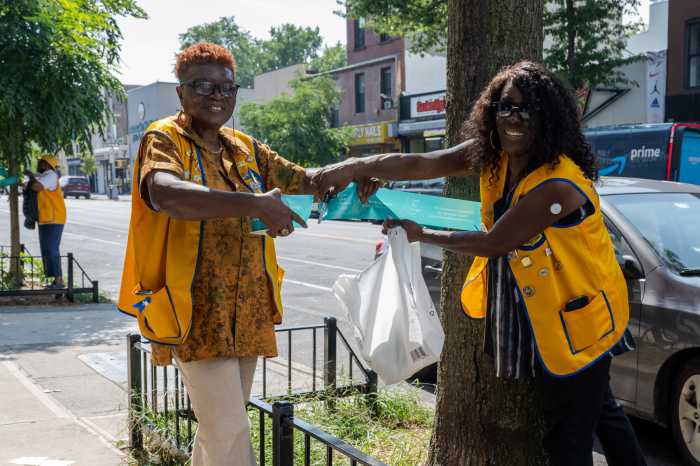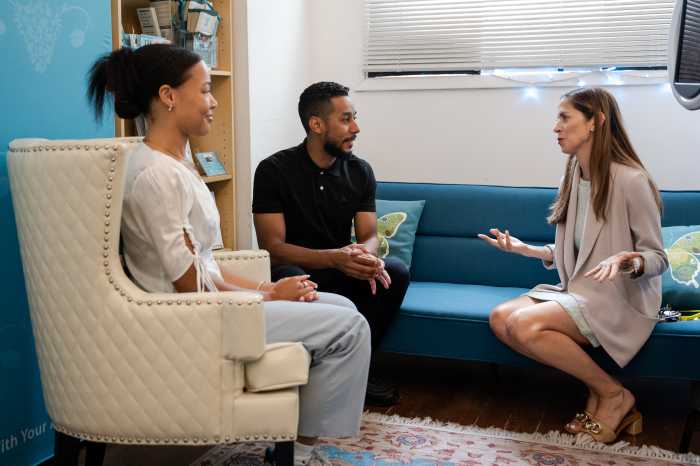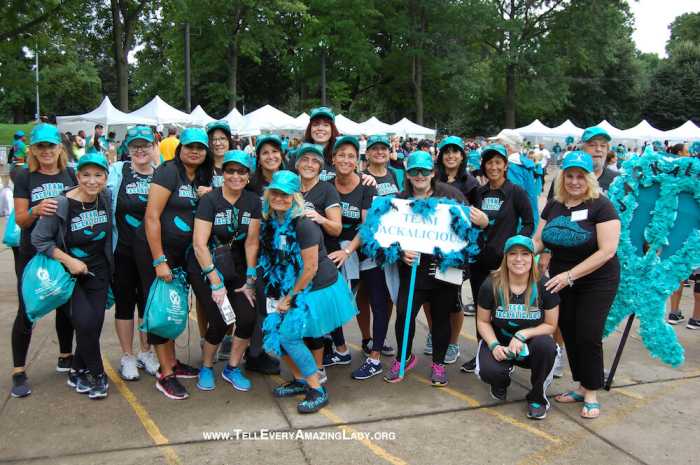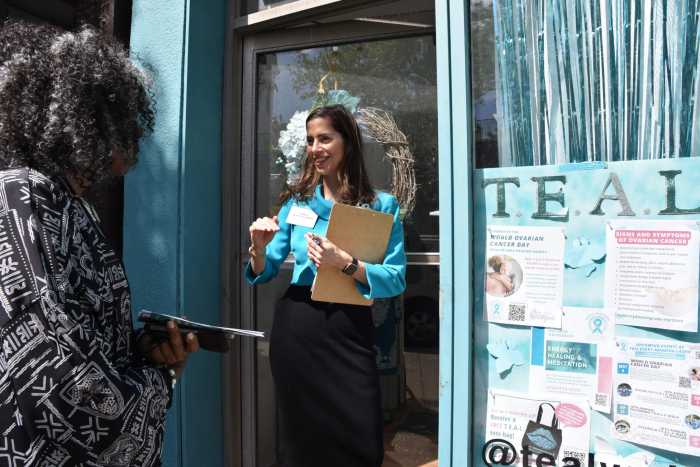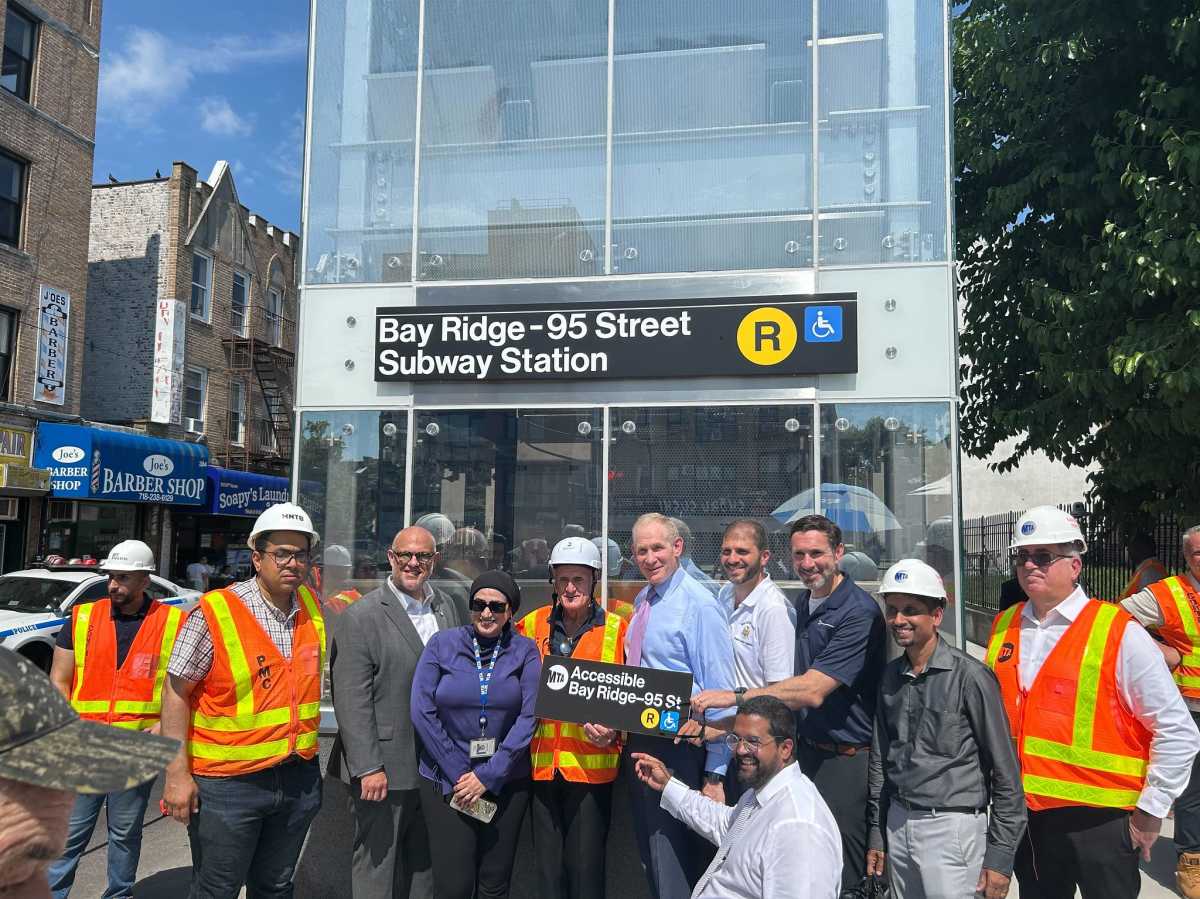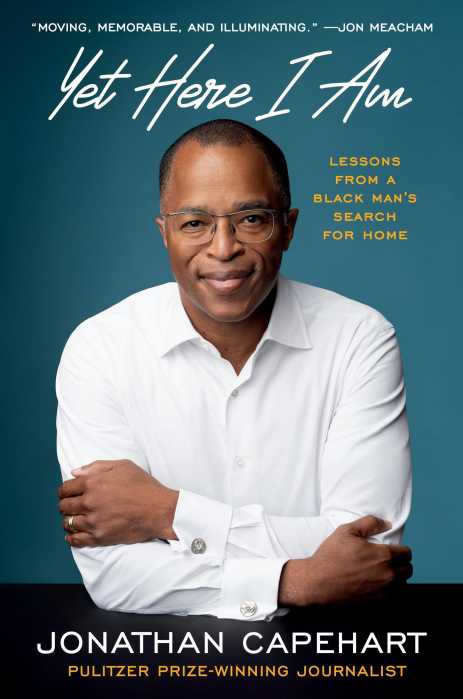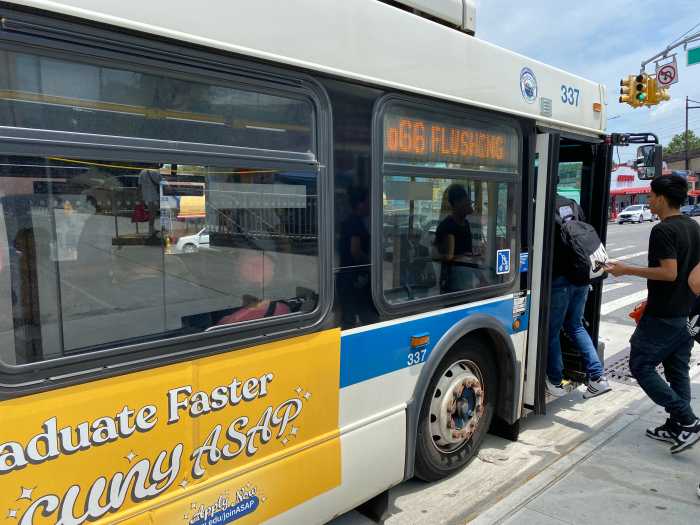September is Ovarian Cancer Awareness Month, and on Saturday, ovarian cancer survivors, their families, and loved ones of those who have lost their battle to the “silent killer” embarked on the 16th Annual Brooklyn T.E.A.L. Walk and Run celebration.
The event, organized by the nonprofit T.E.A.L. — formally known as Tell Every Amazing Lady About Ovarian Cancer — drew over 650 participants, many donning the organization’s signature color, to raise awareness of ovarian cancer and money for a cure.
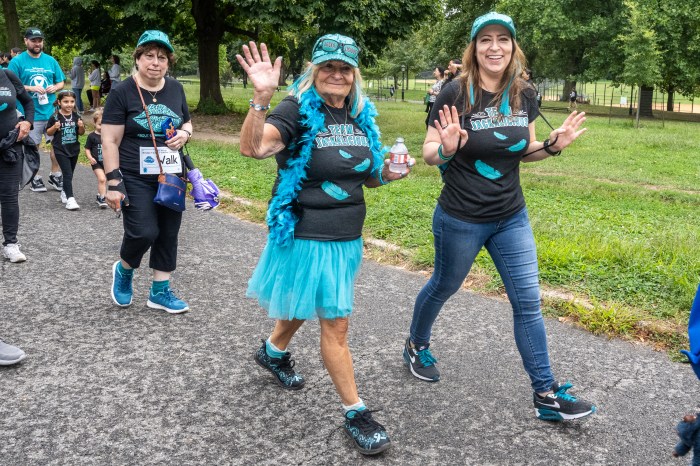
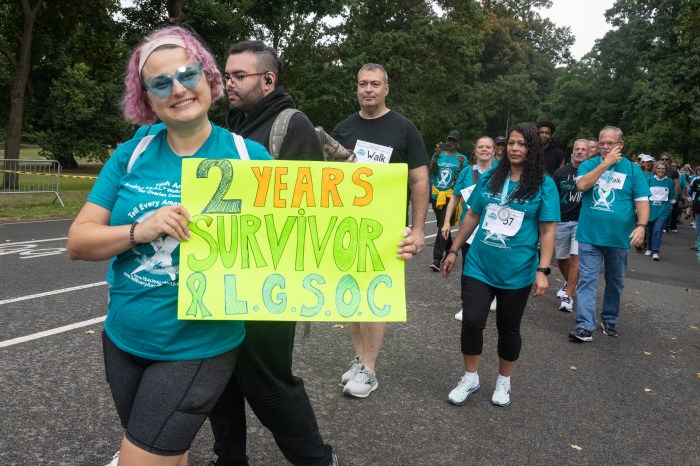
T.E.A.L. co-Founder and C.E.O. Pamela Esposito-Amery, whose sister Louisa M. McGregor died of ovarian cancer in 2011, told Brooklyn Paper it was a “special day” for ovarian cancer survivors. Even though the event is smaller than it was before the pandemic, Esposito-Armery said the number of participants was increasing again.
“It’s been interesting since the pandemic to get our numbers back up, but we’re seeing them come back out in force. So it’s nice to see more people in person,” Esposito-Amery said. “We used to have 5,000 people at this event, [but] even if it’s two people or 5,000, we put on the same kind of event, we put on the same show, and really just make sure that people know it’s a positive, inspiring, beautiful day for everybody here.”
Participants gathered at the Lena Horn Bandshell in Prospect Park, where NewYork-Presbyterian hosted warm-up sessions before runners kicked off the event with a 5k run at 9 a.m.
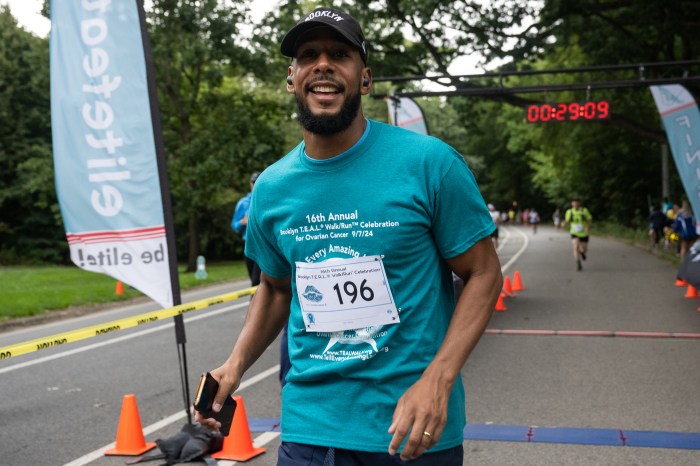

Brooklyn Borough President Antonio Reynoso and Dr. Melissa Frey, a gynecologic oncologist at New York-Presbyterian Weill Cornell, also joined T.E.A.L. at the 5k run start line.
Frey told Brooklyn Paper that research still had “ways to go” when it came to early ovarian cancer detection and treatment but that there was “hope on the horizon.”
She and her colleagues launched the Genetics and Personalized Cancer Prevention Program in 2023 in Manhattan and are set to open an office in Brooklyn soon.
“A lot of what my group does is try to improve access to genetic testing so that especially women where there’s a lot of cancer in their family, can get that test and sort of then take steps to prevent cancer, for example, surgery to remove ovaries and fallopian tubes,” Frey said.
Reynoso said he has prioritized women’s health from day one of his administration and was “happy” to raise ovarian cancer awareness in the “greatest borough.”
“Let’s see what we can do to raise awareness. Make sure we’re doing early checkups to prevent horrible things from happening, and we need to know what to ask, and you need to know when to go [to the doctor],” Reynoso said after the race.
Dr. Vance Broach, a gynecologic surgeon at Memorial Sloan Kettering Cancer Center, was the first runner to cross the finish line.
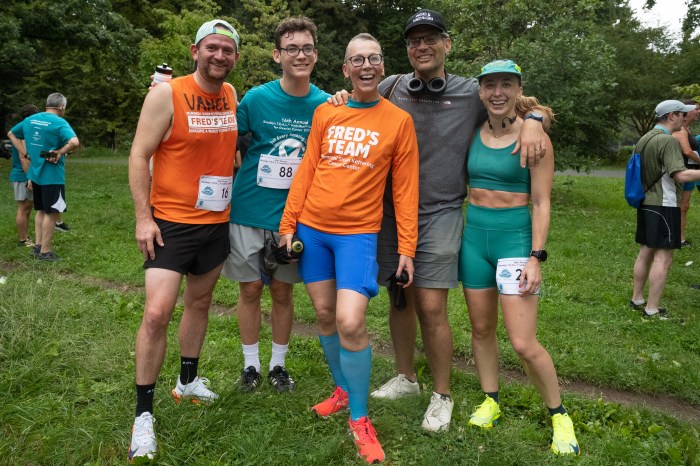
“My colleagues and I from Memorial Sloan Kettering and Cornell and NYU were all doing this to help people with ovarian cancer, make sure that we provide the necessary funds for the research that’s so crucial to their survival,” Broach said, pointing out that he was also running with one of his patients, Pauline Larkin.
Larkin was diagnosed with ovarian cancer in January. After Broach removed two avocado-sized tumors, Larkin underwent chemotherapy. That’s when she began running.
“Running keeps me sane; it really, really keeps me sane,” Larkin said. “I’m training for the New York Marathon for Team Ovary. We’re fundraising for Memorial Sloan Kettering for research.”
The walk started at 11 a.m. after the T.E.A.L. survivor ceremony, where ABC 7 Eyewitness News reporter Stacey Sager shared her experience with her cancer bouts with the crowd. Sager was diagnosed with breast cancer when she was 30, ovarian cancer in her 40s, and recently fought another breast cancer diagnosis.
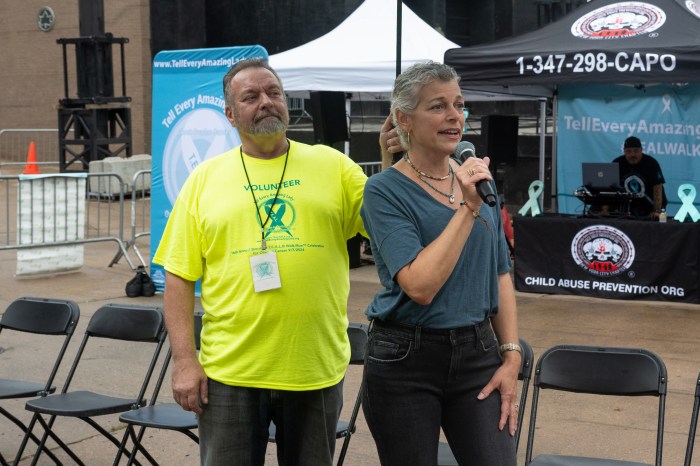
Sager urged women to “know their bodies” and to get tested for BRCA, a genetic mutation that increases the risk of ovarian and breast cancer.
“My genetic test, no doubt, saved my life,” Sager reiterated.
Ovarian cancer is often detected late stage because currently there is no accurate test for the disease. Symptoms include vague, persistent gastrointestinal discomfort, abdominal bloating or swelling, frequent urination, back pain, unexplained changes in bowel habits, and weight gain or loss.
Friends Scott Cancel, Steven Kaminski, and Nathalia Reis walked in memory of their friend Mary Paliouras and to support her husband, Kevin Sullivan.
Paliouras passed away from ovarian cancer at the age of 34. While she displayed typical ovarian cancer symptoms like back pain, her loved ones said doctors did not test her for the disease until it was too late.
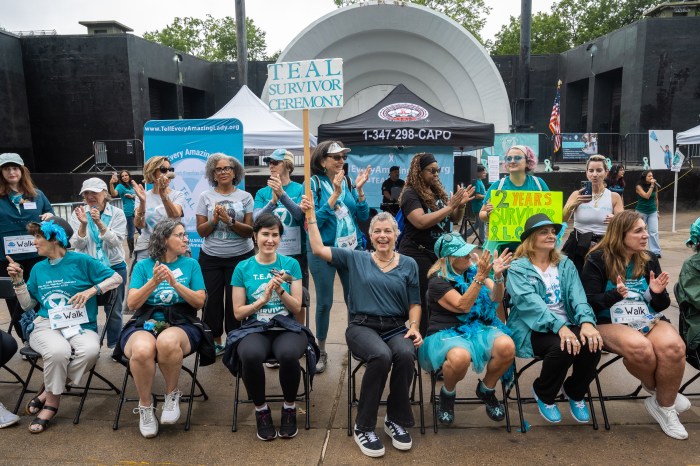
“They were giving her C.A.T. scans and X-rays. It wasn’t until way late in the process that they did blood tests and figured her white cell count was elevated, and they slowly started figuring out what it was. And by then, it was so late in the process [and] there wasn’t much they could do,” Cancel told Brooklyn Paper.
Miriam Wasmund, her partnes Lewis Lines, and their two dogs, Ace and Aebo, walked for Wasmund’s mom, who was diagnosed in February 2017 and died a month later at the age of 69.
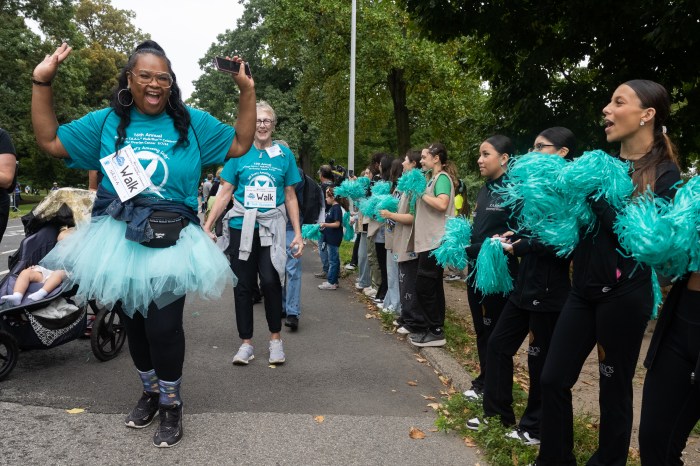
Wasmund told Brooklyn Paper that events like the T.E.A.L. 5k Walk/Run were important because, all too often, women’s health issues were overlooked, and ovarian cancer symptoms easily dismissed as something like stress.
Wasmund hoped that besides women, T.E.A.L’s message would also reach doctors.
“I think sometimes things that don’t seem as prevalent in the medical community aren’t researched as much,” Wasmund said. “I think even the medical professionals aren’t always thinking of something that could be really obvious.”


